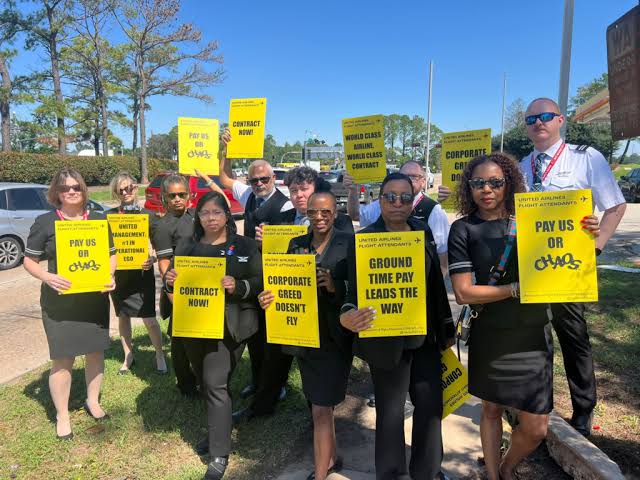
United Airlines flight attendants recently took a significant step in their ongoing contract negotiations by voting to authorize a strike. However, this development does not mean that a strike is imminent. The vote is more a statement of resolve rather than a signal of immediate action.
Flight attendants at United have been in a position to renegotiate their contract for almost three years now, a process that has been ongoing under the guidance of the Association of Flight Attendants (AFA). This vote to authorize a strike is a strong signal to the airline’s management that the attendants are serious about their demands. However, it’s crucial to understand that while the strike authorization increases the likelihood of a strike, it does not mean that flight attendants are preparing to walk off the job anytime soon.
Ken Diaz, president of the United chapter of AFA, emphasized the unity and determination of the flight attendants in a recent statement. He noted, “We deserve an industry-leading contract. Our strike vote shows we’re ready to do whatever it takes to reach the contract we deserve.” The overwhelming 99.99% approval for the strike authorization underscores the collective dissatisfaction with the current state of negotiations and a strong stance against what they perceive as corporate greed. The flight attendants are clearly prepared to push for a contract that reflects the contributions they make to the company’s success.
Despite the strong vote, travelers planning to fly during the Labor Day weekend and beyond have little to worry about in the immediate future. The strike authorization is a procedural move that gives the union more leverage in negotiations, but it does not trigger an immediate work stoppage. In fact, the process to actually initiate a strike is complex and drawn out.
Currently, the negotiations between United Airlines and its flight attendants are under the supervision of the National Mediation Board (NMB). Before any strike can occur, the union must seek an official release from these talks. If the NMB grants this release, it would start a mandatory 30-day cooling-off period, during which both parties would have an opportunity to reach an agreement, possibly through arbitration.
Even if the cooling-off period ends without a resolution, there are still measures in place to prevent a strike from happening. For instance, President Joe Biden has the authority to establish a Presidential Emergency Board (PEB), which could further delay or avert a strike by bringing both sides back to the negotiating table. Only if all these steps fail to produce an agreement would United’s flight attendants have the legal right to strike.
This strike authorization is part of a broader trend in the airline industry. In recent years, several groups of unionized flight attendants at major U.S. airlines have held similar votes. These votes are primarily used as a bargaining tool to pressure management into offering better terms. However, despite the numerous strike authorizations, there has yet to be a significant strike action among flight attendants in the airline industry.
The situation at United reflects growing frustration among airline workers across the industry, many of whom have been working under contracts that have not kept pace with the rising cost of living and the increased demands placed on them, especially during and after the pandemic. Flight attendants, in particular, have faced a challenging work environment, with longer hours, more difficult working conditions, and a rise in unruly passenger behavior. These factors have contributed to the increased resolve among flight attendants to push for better contracts.
While the strike authorization vote is a powerful message to United Airlines management, it is important for the public to recognize that the process leading up to an actual strike is long and involves multiple stages of mediation and negotiation. The union’s goal is not necessarily to strike, but to use the threat of a strike as leverage to secure a better deal. This is why, even with the authorization in place, it is unlikely that travelers will see any immediate disruptions.
In the meantime, negotiations will continue, and both sides will likely return to the table with renewed urgency. The flight attendants are pushing for a contract that recognizes their essential role in the airline’s operations and compensates them accordingly. On the other hand, United Airlines will be working to avoid a strike, which could be costly and damaging to the company’s reputation.